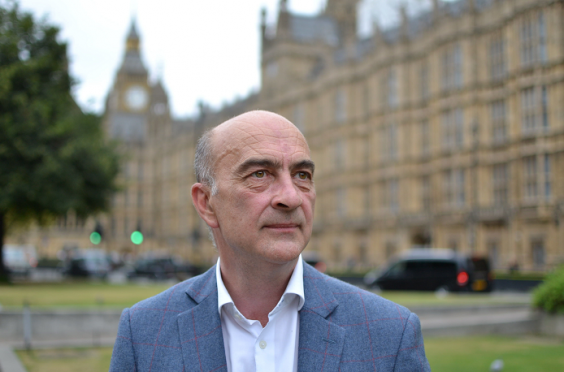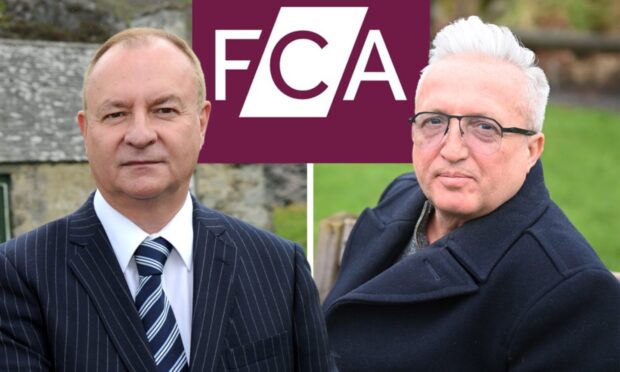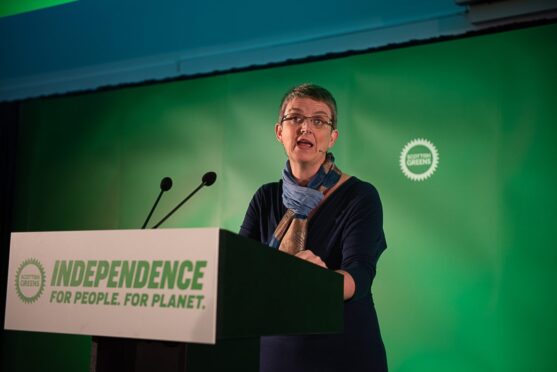The price of a cafe latte. Or if you prefer it, a cappuccino. Per household. Per week. Just 10p a day per person for a family of four. That’s the cost of a TV licence fee.
The BBC offers stonking good value and is the best public service broadcaster in the world. I have written before in these pages about just how lucky we are to have them, so I won’t repeat the facts here.
But Auntie was at the centre of a storm last week as she was forced to publish details of how much her presenters are paid. The revelations produced the surreal spectacle of BBC news anchors interviewing BBC top brass about their own pay.
There was a right stushie. Anybody who has ever had any grievance about the BBC used it to grind their axe to a razor-sharp edge.
Social media was ablaze with outrage and indignation. One daily newspaper tried to set breakfast presenter against fellow presenter but spectacularly got its facts wrong. It was an indignant feeding frenzy which left me with indigestion.
Let’s get one thing clear at this point: If a man is being paid more than a woman for doing the same job to the same standard, that is wrong. Forcing that issue into the spotlight is the only good which has come from this otherwise sorry affair.
But surely there are other ways to tackle this, not least through the legal obligations on all employers, public and private, without the need to single out the BBC?
Because if this was right for our national broadcaster, then surely the same goes for all the TV companies? What about ITV, and Channel 4, and 5, and Sky, and BT and all the others?
“But the BBC is funded by us,” goes the reply. “We can’t opt out. The licence fee is a sort of tax. We have a right to know.”
Bunkum. Hogwash. Balderdash.
Who do you think pays for all the others? We do. And I don’t mean through any subscriptions we pay – in any case they don’t apply to the other terrestrial channels.
Except in the case of the BBC, vast amounts of revenue comes from advertising. Which is paid for by us, the consumer of the products and services on display. We pay the wages of the stars on our screen whichever button you press on the remote control.
Then there is the row about whether any presenter is worth the money they are receiving: “They are just reading an autocue on the news; or introducing songs on the radio or; chatting in a studio. Anybody could do that . . . nobody is worth that much money . . . just think how many nurses we could pay for instead for that . . .”
On this last point, it is not a zero sum game. The BBC works from a fixed budget. Money not spent on presenters would instead be spent on something else within the BBC.
And, whisper it, the best talent does cost money in all walks of life and those on big pay, pay big taxes, and that does fund our public services.
Like it or lump it, it is a competitive world. If you want to put a cap on what anyone can earn, then you are welcome to your socialist Valhalla, and you can kiss goodbye to some of our country’s brightest, innovative and wealth-creating talent as they flood overseas for better opportunities. You might not like it, but we would all have to lump it.
Which is maybe why, in all the furore about top pay for the big BBC stars, much of it seemed to centre around the fury venter’s personal opinion of the individual in the crosshair of their criticism.
It quickly descended into: “How on earth is X or Y worth that much? He/she is a waste of space etc.”
And in the case of some in the current affairs field, the irate outpourings often coincided with the scorner’s perception of the political bias of the individual in question. Or their warped sense of the British Biased Corporation in general.
So yes, let’s shatter once and for all any gender pay gap at the BBC, and everywhere it rears its misogynistic head. But not this way.
I believe that people have a right to privacy and that there is a big difference between the public interest and that which interests the public. Stop confusing the two.
It’s been another great week for sport. The Open, Le Tour de France, the British Grand Prix and Wimbledon last weekend. European football is upon us and the Test matches in cricket, are in full swing.
As you will know by now, I love my sport. Almost without exception. But there are some things which raise my hackles. Here follows a random list of just a few:
In golf, the cries of “Get in the hole.” Thankfully absent from the AAM Scottish Open, but all too evident wherever our American golfing friends walk the fairways. Please, just shut up.
In cycling, the fans who run alongside like demented idiots screaming at the competitors on a climb. How they never “accidentally” get an elbow to the face is a wonder of self-control by the men on bikes.
In tennis, the grunts. On every stroke. Although when both players are at it, the climactic applause by the crowd when it is over does make it sound like they were up to something else…
In synchronised swimming, the smiles. Just the fixed, false smiles.
Anything you could add?
————————————————————-
From time to time on Twitter, there erupts a great biscuit debate about which Tunnock’s is top. The Caramel Wafer or the Tea Cake. Or even the Log?
But a new biscuit brouhaha broke out last week about the wrappers. The company decided to put the Union flag on to its packaging to appeal to the Japanese market. Cue renewed outrage from a small but extremely stupid section of cyberspace.
They were flabbergasted that any Scottish product could do such a scandalous and treacherous thing. Never mind that the UK flag is much better known than the Saltire. Or that success is good for Scottish jobs and taxes. To this band of bitter Bravehearts, this took the biscuit.
Anyhow, I am grateful to them for giving me a good laugh at their expense.
And I predict the extra publicity generated won’t do Tunnock’s much harm either.










